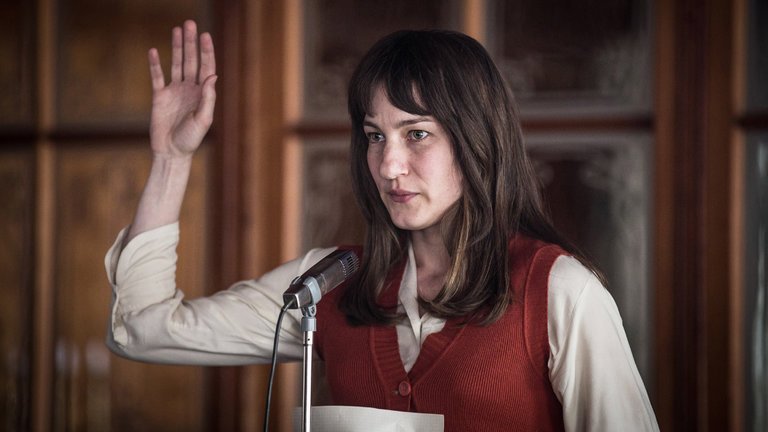The 8th March marks International Women’s Day, and whilst there are myriad issues which affect women every day, it’s fair to say we’ve come a long way. However, that’s not to say countries across Europe progressed at the same pace. Northern European countries led the way but other nations followed in dribs and drabs. In 1976, Portugal was the last country in Western Europe to grant women’s suffrage but they weren’t far behind Switzerland. Petra Biondina Volpe’s drama The Divine Order focuses on the latter.
Nora (Marie Leuenberger) is a housewife in a small conservative Swiss village where everyone knows each other’s business. Now their boys have reached a certain age, she’s keen to go back to work. However, her husband Hans (Maximilian Simonischek), who’s a foreman at the local factory, believes a woman’s place is in the home. As her father-in-law keeps telling her, women have to do what men want.; it’s the ‘divine order’. When events on her brother-in-law’s farm reach a head, and with a referendum on women’s right to vote on the horizon, Nora is compelled to take matters into her own hands
The Divine Order is a powerful drama where one woman’s fight represents thousands of individual struggles which were taking place across Switzerland at the time. The decision to tell the story in such a small, conservative and self-reliant community allows Volpe to demonstrate the issues whilst avoiding melodrama or forced comedy. Due to the particularities of federal law, it wasn’t until 1991 that women in all districts of Switzerland were granted the right to vote. The Divine Order paints a compelling picture of individual determination against the backdrop of an extremely traditional and religious society.
The Divine Order is in cinemas from 8 March.












No Comment